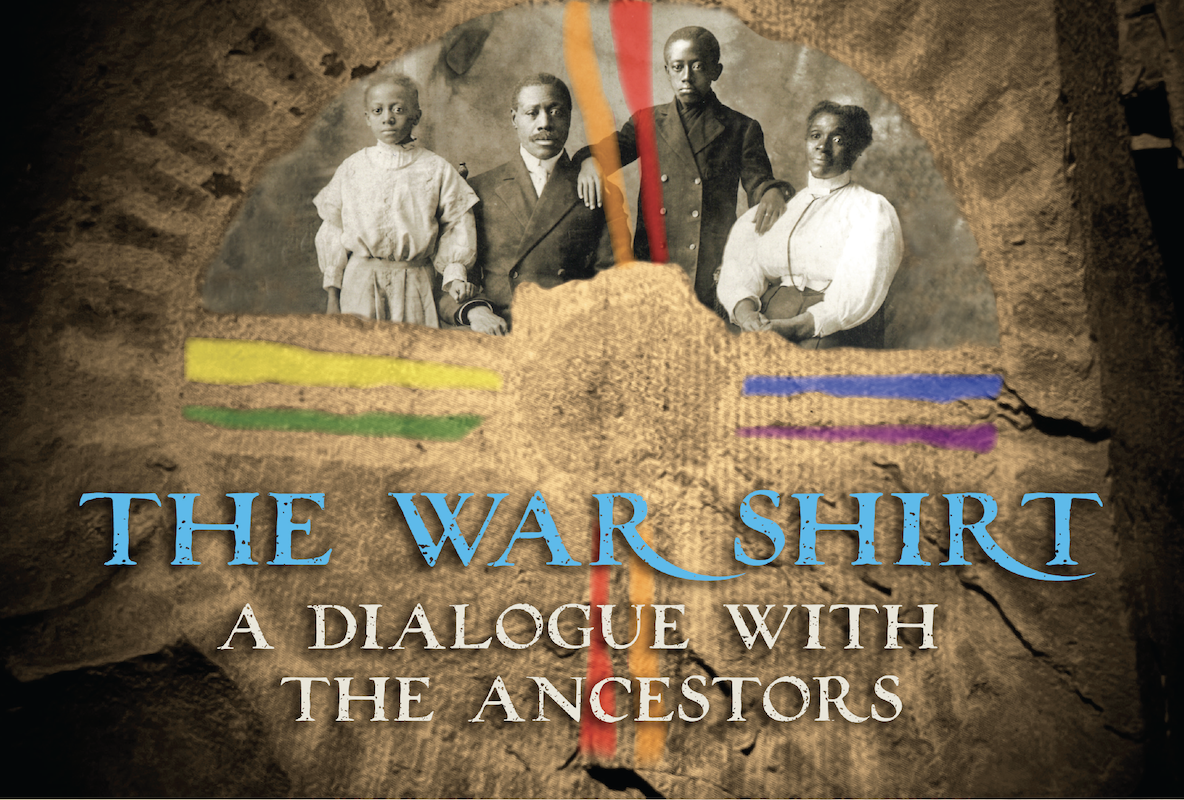‘The War Shirt: A Dialogue with the Ancestors’ World Premiere Documentary at Santa Barbara’s Marjorie Luke Theatre
Passion Project to Premiere September 19, with Free Screening

Passion Project to Premiere September 19, with Free Screening

What started as a one-man show — The War Shirt, starring actor-dancer Michael Downey and directed by artist Rod Lathim — has evolved a step further into a new documentary.
The War Shirt: A Dialogue with the Ancestors, a locally created and nurtured project that embraces and explores Native American and African American cultural traditions and history, will have its world premiere on Tuesday, September 19, at 7:30 p.m. at the Marjorie Luke Theatre. The screening of the 45-minute documentary will be free to the public and open-captioned, with the live post-film elements of the evening including sign language interpretation.
An accomplished neon sculpture artist who has had art exhibits in Santa Barbara, Palm Springs, Nashville, and New York City, Santa Barbara–born Lathim founded Access Theatre in 1979. He met Downey in 1981, when Lathim hired him to choreograph Stage Struck, an original musical he was co-creating and directing at the time.
The play The War Shirt, which Downey performed last year and is currently streaming as a part of the Marjorie Luke Virtual Concert Series, is the story of Downey’s life journey centering on his relationship with his late father. Downey and his father experienced a profound and wonderful closure to their relationship on the last night of his father’s life. After he died, Downey realized that he needed to share his experience with others, hence the creation of The War Shirt.
Downey’s father was an African American man who strongly embraced and identified with the Native American influences that are in his family. “Michael Downey and I were compelled to tell the story of how the play was developed, and how his ancestors played a role in the play and the development of this film,” said Lathim.
Downey said he felt like the production of the play, as well as the documentary, was being guided by invisible hands that cleared a pathway, as if he were being propelled forward by something much larger than he was. Even though Downey was told by Lathim that the film would likely take a different path from what they envisioned, it picks up from where the play ended and continues Downey’s personal journey into self-discovery.
In the play, there is a line that says, “I want to live in a world where present reality communes with history and generates an enlightened future.” As the film focuses on Native American and African American cultural tradition and history, Downey wants people to take away that tradition and history are living influences that affect our circumstances in the present.
“I think that the downfall of humanity is that we tend to act on our present situations without carefully acknowledging the past influences that have created those circumstances,” said Downey. “This kind of shortsightedness tends to reduce our awareness of who we really are and how we are connected to others.”
Lathim would like the film to encourage people to embrace their ancestors and the role that they play in shaping life in the physical world. “In today’s world, I believe it is critically important to learn from history and not repeat past mistakes,” said Lathim.
Please note this login is to submit events or press releases. Use this page here to login for your Independent subscription
Not a member? Sign up here.